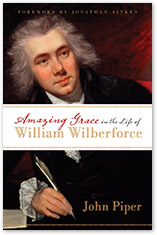Many Christians, especially strongly conservative Christians, begrudge the celebration of Martin Luther King Jr. Day. I know I did (at one time). I, along with others, lamented that President’s Day or the birthdays of Lincoln and Washington were not given as much press and esteem as MLK Day. And I bought into rumors concerning the underhanded tactics of King, as a way to discount any reflection on his life. And I learned little of his life or his cause in the Christian education I received growing up.
My freshman year at college, however, when we had two freshman black male students (which was much more than normal for our fundamentalist institution), the typical disdain for MLK Day did not go over very well. They were alarmed and incensed that us “white boys” could not or would not esteem MLK. Of course none of us white boys owned up to any degree of racist tendencies in ourselves either. We treated everyone the same, we thought, and since we were white, we never felt the truth to be otherwise.
Since leaving fundamentalist circles, I have come to appreciate the issue of racial harmony and racial justice much more. This is in large part to our church which takes a stand for racial harmony, and our pastor (John Piper) who preaches one or two messages on the topic each year around MLK day. You see, it is easy for me, a “white boy”, to go through many days without thinking of the issue at all. But for blacks, in countless though often subtle ways, they are reminded of the issue day in and day out.
This post is not going to explore the issue any more than this. If you’d like to do so, check out the list of sermons and articles on the topic available at Desiring God. Instead this post wants to highlight a less well known hero in the matter of racial justice: William Wilberforce.
 William Wilberforce was the man most responsible for stopping slavery in Great Britain. As a member of Parliament, he fought 20 years to end the slave trade, and then another 26 years to make slavery itself illegal. This year, we are coming up on the 200th anniversary of the ending of the slave trade in Britain. Feb. 24th 2007 it will be 200 years. In honor of this milestone, a movie will be released in February entitled “Amazing Grace: The William Wilberforce Story”. I have heard that it will be quite good and historically accurate. You can check out the movie’s website and trailer here.
William Wilberforce was the man most responsible for stopping slavery in Great Britain. As a member of Parliament, he fought 20 years to end the slave trade, and then another 26 years to make slavery itself illegal. This year, we are coming up on the 200th anniversary of the ending of the slave trade in Britain. Feb. 24th 2007 it will be 200 years. In honor of this milestone, a movie will be released in February entitled “Amazing Grace: The William Wilberforce Story”. I have heard that it will be quite good and historically accurate. You can check out the movie’s website and trailer here.
John Newton, as you know, wrote that most famous of songs: “Amazing Grace”. But you may not know that at one time he was himself a captain of a slave trading ship. In fact he ended up becoming a white slave himself for a time. Newton was a friend of Wilberforce, and truly the outlawing of slavery is an act of amazing grace: hence the title for the movie.
With the day off today, I have been reading through a new book by John Piper on this very subject. It is entitled Amazing Grace in the Life of William Wilberforce. It was timed to be available in conjunction with the movie’s release, and you can order a copy (or copies) here. You can even read it online here.
The book highlights the amazing life of Wilberforce. William was a truly evangelical Christian and he endured despite tremendous opposition for decades in his fight to end slavery precisely because he was Christian. In today’s world where Christianity is so despised, it is good to remember that the end of slavery is one of Christianity’s gifts to the world! Piper highlights what made Wilberforce tick, and the answer will surprise you. Wilberforce thought the “peculiar doctrines” of Christianity were essential for proper morals and public morality. He despised the divorcing of doctrine from Christian ethics which in his day was already becoming popular. And Wilberforce, as Piper would term it, was a Christian Hedonist. He prized the importance of a deep joy in God.
So on this Martin Luther King Jr. Day, stop and ponder the issues of racial harmony in your own life. And pause and reflect on God’s wonderful grace in Wilberforce’s life. Again, the book is available online for free (as a pdf file). So when you have some time this week give it a read (it is short, only about 75 pages).